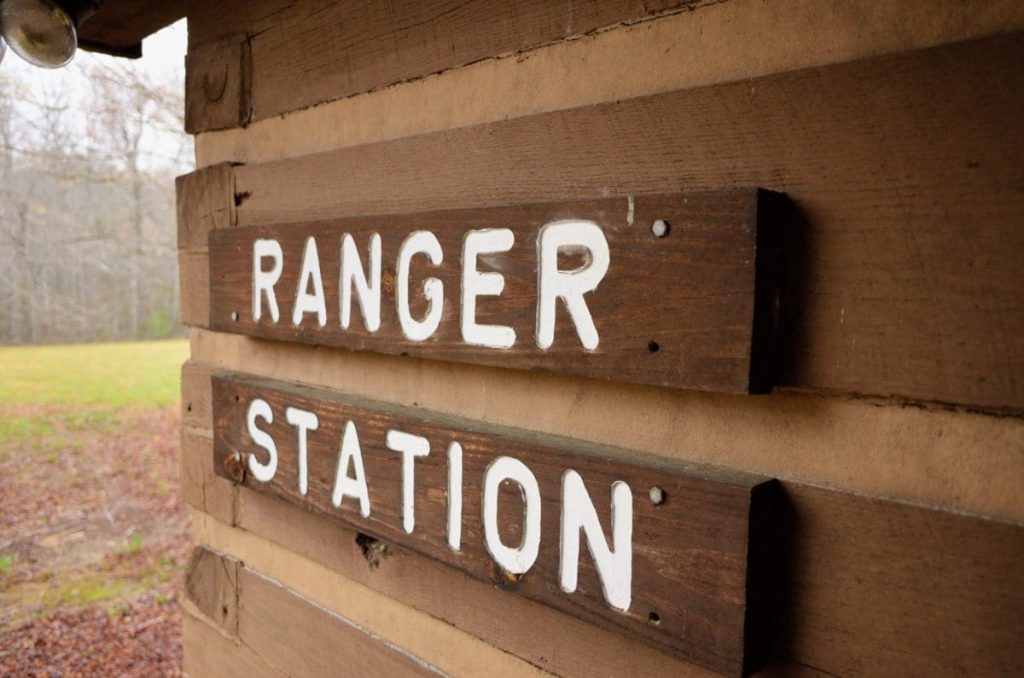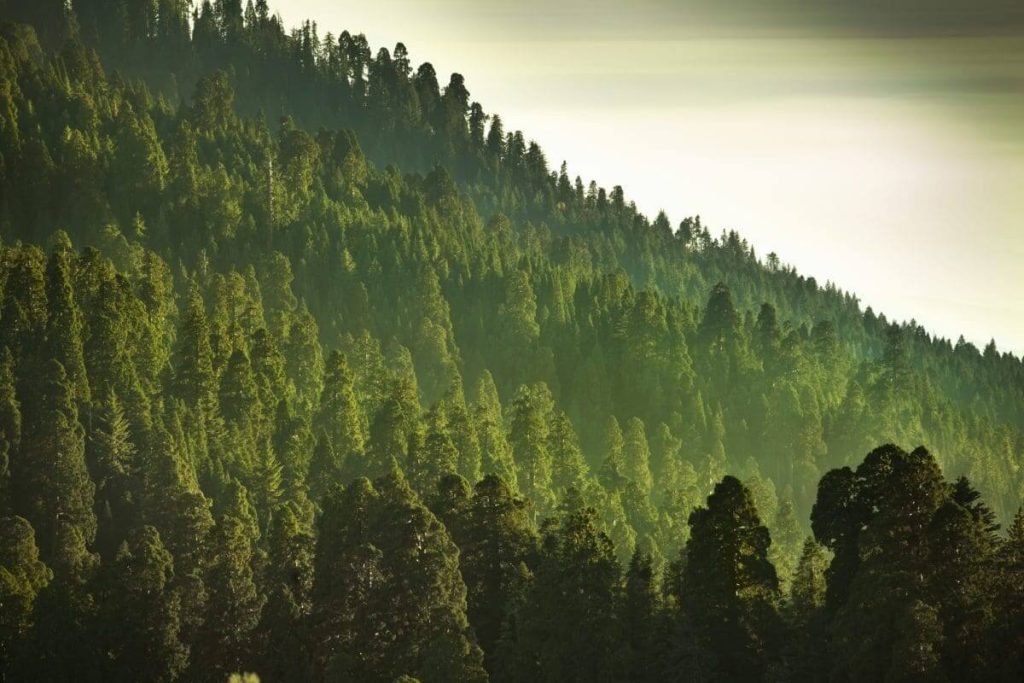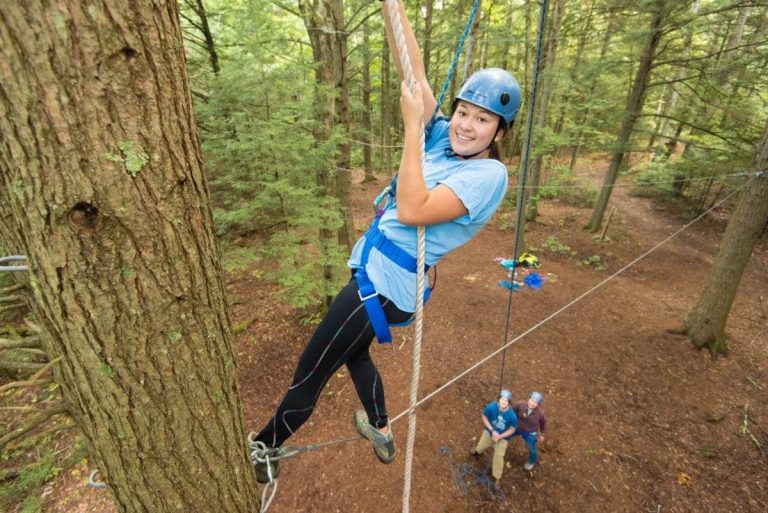

If you enjoy being outdoors and want help maintain and protect natural resources, becoming a forest ranger could be the ideal career choice. This diverse and challenging job encompasses a robust range of responsibilities and duties that ensure no two days are exactly alike.
Forest Ranger Job Duties
The primary duties of a forest ranger center around protecting natural resources while also finding ways to improve and manage them more efficiently. While working with diverse groups, such as government agencies and local landowners, you might advise people on how to control erosion, suggest agricultural uses for land, negotiate forest harvesting conditions, and participate in the suppression of forest fires.
Conservation Law Enforcement Careers
Conservation Law Enforcement careers span a number of possibilities. “Each of these falls on the continuum of protecting natural resources but they each have a specific focus” says Zach Falcon of Unity Environmental University. For example, you might work as a park ranger within a local, state, or national park. In that career, you could be responsible for developing programs that enable the public to safely enjoy their local resources.
A game warden, on the other hand, would be more focused on the rules and regulations that govern hunting and fishing. Conservation officers might discover that their job entails efforts aimed at conserving and protecting natural resources while an environmental police officer would enforce the specific regulations in place in their area. Many of these career titles overlap and might be used interchangeably depending on what region of the country you are in.
Forest Ranger Requirements
Prior to employment as a forest ranger, you’ll need to gain the relevant education and knowledge necessary to be successful at your job. You’ll also have to demonstrate you possess skills and characteristics for:
- Public speaking — you may find yourself delivering information and instructions to both large and small groups of people
- Critical thinking — you will often need to draw correct conclusions using your knowledge, observations, and forest service skills
- Endurance — you will likely be working in all types of weather and in challenging terrain
- Communication —you must be able to work effectively with others on your team as well as landowners, government agencies, and members of the public
- Analytics — you may be required to evaluate the results of computer modeling, GIS technology, field tests, and more
- Decision-making — you have to be able to determine the best plan of action to achieve specific goals
Forest Ranger Education and Training
In most cases, a bachelor’s degree in a focused discipline such as conservation law enforcement, natural resources, environment management, or agricultural science is required. This coursework is designed to provide you with practical skills, as well as theory and application, that enable you to perform your job. Typical courses you’ll be required to complete often include forest resource measurement, ecology, biology, computer modeling, and remote sensing.
Forest Ranger Salaries
Not surprisingly, the actual salary you can make as a forest ranger depends on exactly what your jobs duties are and where you are located in the country. However, according to the Bureau of Labor Statistics, forest rangers earned a median annual wage of nearly $64,000 in 2020. In most cases, a forest ranger is employed full-time and works a standard schedule.
Your salary as a forest ranger also depends on which sector your job is located. Working with the federal government, for example, is the top industry for forest rangers as far as pay. Other lucrative industries include working for social advocacy agencies, the state government, and the local government. Companies that provide technical, professional, and/or scientific services could also provide attractive compensation.
Employment and Outlook
The demand for forest rangers is expected to grow about five percent between 2019 and 2029. Much of this growth is expected to be within forest lands that are owned by either the local or state government.
With the increase in wildfires and the threats they bring, relevant and related skills are expected to be highly sought after in a forest ranger. As weather conditions have changed and people continue to live close to forest lands, the need for more forest rangers is expected to increase.
For the best job prospects, it’s important that a forest ranger has an understanding and working knowledge of technology such as remote sensing, Geographic Information System (GIS), and other types of software.
The Benefits and Drawbacks of Being a Forest Ranger
Becoming a forest ranger means you’ll be spending a great deal of time outside. You’ll be active and engaged with the natural world. In most cases, no two workdays will be exactly the same. It’s likely that you’ll have the opportunity to shape the future of the country’s natural resources as you work closely with governments, landowners, and the public.
Of course, there are also some drawbacks to choosing a career as a forest ranger. In this role, you’ll work in all types of weather. Depending on the area of the country in which you’re based, this could mean that you’re exposed to blistering summers and freezing winters.
You’ll work outdoors in the rain, get dirty, and physically exert yourself on a daily basis. In addition, being a forest ranger carries an element of risk. Whether you are actively attempting to suppress a forest fire, encountering wildlife, or you’re tasked with removing a rotten tree, there are undeniable dangers that require you to implement all your training, knowledge, and expertise as you carry out your duties.
Frequently Asked Questions (FAQs) About Being a Forest Ranger
Is becoming a forest ranger hard?
Becoming a forest ranger requires that you obtain a bachelor’s degree that provides you with the skills and knowledge you need to do the job. You’ll need the dedication to do well in your studies and the determination to apply the knowledge you gain to your career.
Is forest ranger a good job?
If you love to work outdoors while making a difference in the conservation and protection of natural resources, becoming a forest ranger could be the perfect job for you. You’ll be compensated fairly, apply your knowledge and expertise every day, and use cutting-edge software to complete your job.
Do forest rangers carry guns?
Not all forest rangers carry guns, but those who have a focus on law enforcement typically do.
What’s the difference between a park ranger and a forest ranger?
There are many similarities between a park ranger and a forest ranger. In some localities, the lines between these careers might be blurred or different in name only.
Gain Applicable Work Experience
One of the best ways to gain applicable work experience as a forest ranger is to volunteer at your local forest land, local park, conservation agency, or a similar option. Doing so provides you with the hands-on experience of learning what is involved in becoming a forest ranger within that role.



